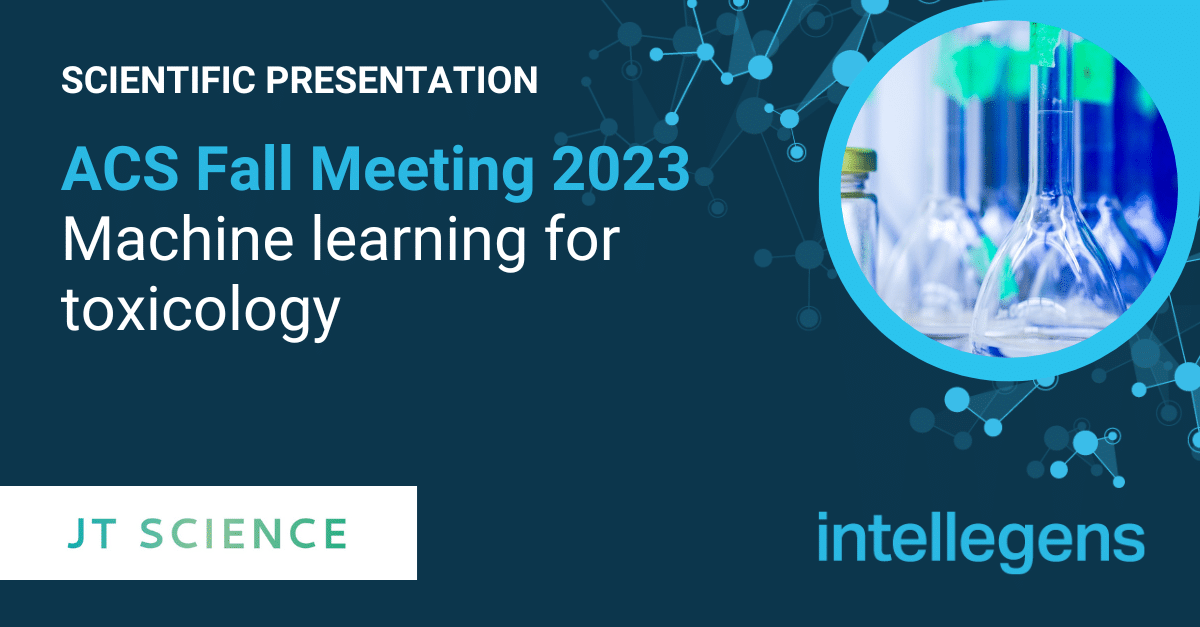Research findings presented at ACS Fall Meeting
JTI and Intellegens have applied machine learning to study toxicology. Project results will be presented at next week’s American Chemical Society (ACS) Meeting in San Francisco.
Analysing experimental datasets to understand and enable control of the toxicological properties of chemicals is a key task for R&D teams developing chemicals and formulations in areas such as life sciences, fast moving consumer goods, and foods and beverages.
Such datasets often contain gaps, particularly if they aggregate the results of more than one study. With high experimental costs and long lead-times in development, these teams search for any insight that can gain more value from each experiment, generating new understanding to speed up the development process.

The focus of the project has been on validating the use of machine learning (ML)-based imputation methods for extracting value from toxicity data, and comparing this approach to traditional QSAR-based methods. An open-source data from the OECD QSAR Toolbox was studied, comprising approximately 2,500 ingredients with limited in vitro and in vivo data. The ML used was the Alchemite™ method from Intellegens. Because this is able to extract information from each endpoint in the data simultaneously, it was found to surpass the performance of the well-established single endpoint methods. The method is also more resilient to the inclusion of additional chemical or experimental data.
As a result, such ML approaches should not only produce richer information for the teams studying toxicology, but should enable a reduction in laborious data pre-processing tasks.
Presentation details
Title: Toxicological data gap filling using machine learning approaches; quantifying the benefits of imputation over single endpoint QSAR methods in toxicology data modelling of ingredients
Session: Algorithm Development and Data Analysis in Chemical Space (Division of Chemical Information)
Timing: 10:40am, Sunday, 13 August
Authors:
- JTI (Presenting organisation): Daniel Mucs, Irene Baskerville-Abraham
- Intellegens: Thomas Whitehead, Joel Strickland, Gareth Conduit
- Inotiv: Alexandre Borrel

